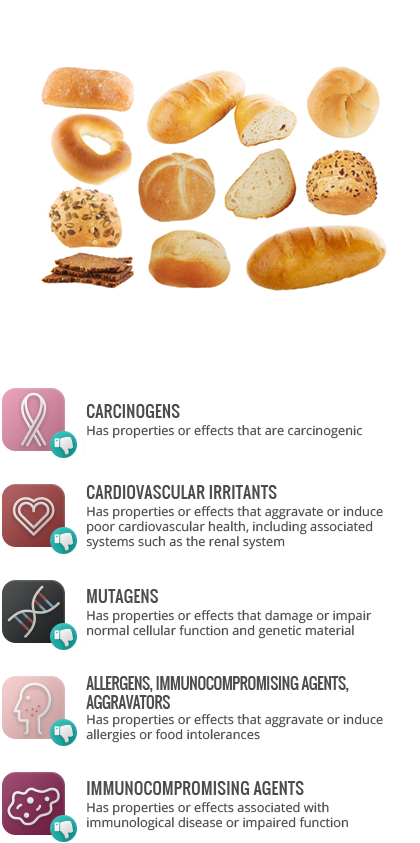Potassium bromate
Definition
Potassium bromate is used to treat wheat flour and improve bread doughs. If the bread is not cooked long enough or at a sufficiently high temperature, residual potassium bromate may remain.
Health considerations
The International Agency for Research on Cancer classifies potassium bromate as possibly carcinogenic to humans. Rat studies have shown it to be carcinogenic and to induce DNA mutations. Studies also suggest it to have serious effects on white blood cells, on kidney function, including renal cancer risk, and there are reports of hearing loss following very high consumption.
Keep in mind
Potassium bromate is prohibited from food production in the EU and numerous countries including Canada, Brazil, and China. It is permitted but discouraged within the US, and California requires labeling of its use.
May be found in
Bread, flour, flour-containing foods, malt barley
References
Mutation Research/Genetic Toxicology and Environmental Mutagenesis
Otolarynyology and Head and Neck Surgery
Environmental Health Perspectives
INCHEM
OEHHA: Office of Environmental Health Hazard Assessment


